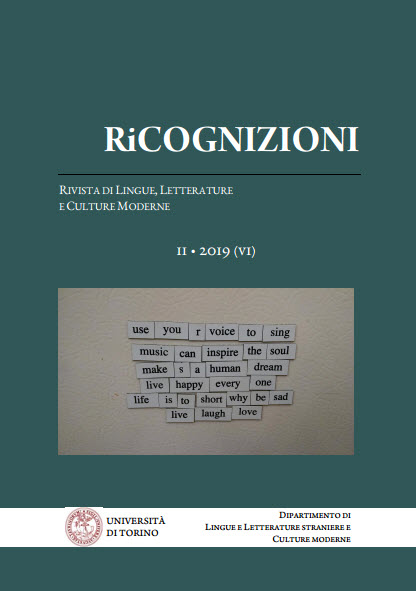APPROACHES TO THE PHONÉ OF POETRY: THE EXPERIENCE OF PHONODIA
DOI:
https://doi.org/10.13135/2384-8987/3266Keywords:
author’s voice, poetry, reading, recordings, critical listening, intermedial relation.Abstract
Approaches to the phoné of poetry: the experience of Phonodia. The digital archive project dedicated to the voice of poets called Phonodia and created at the Ca’ Foscari University of Venice was born as a tool to investigate the “intermedial relation” that occurs between a poetic text and its recorded version with the reading voice of the author. After some suggestions about the concept of phoné in poetic language, the article focuses on how the specific configuration of Phonodia web page, in which text and recording are juxtaposed and experimented simultaneously, not only activates an intermedial relationship between voice and writing, but also hybrids the status of both the author, who becomes an “author-reader”, and the traditional reader who becomes a “reader-listener”. By an interdisciplinary approach that combines philosophy, psychology, anthropology, linguistics and cognitive sciences, the article also offers a possible method to “critically” listen to these recordings and finally treat them as a real part of the hermeneutical process.
Downloads
Published
How to Cite
Issue
Section
License
RiCognizioni is published under a Creative Commons Attribution 4.0 International License.
With the licence CC-BY, authors retain the copyright, allowing anyone to download, reuse, re-print, modify, distribute and/or copy their contribution. The work must be properly attributed to its author.
It is not necessary to ask further permissions both to author or journal board.








